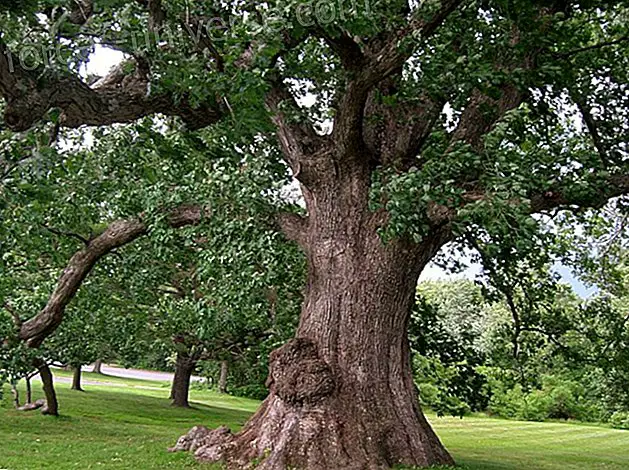What do you have to cure? Do you want to heal ? I invite you to know the collective souls, you are able to transcend, move forward and heal!
If you wish, before starting your reading you can scroll through our content index, remember that you can advance to the section that you wish to read with more dedication.
Know the Collective Souls to Heal
One of the favorite topics we sometimes encounter when conversing with people is about generosity, and its counterpart, selfishness.
We all know about these two characteristics, which are constantly manifested in our society. Some even claim that selfishness is the greatest evil of our time, and the defect from which all other defects in people are generated.
Extensive contributions have been written about this whole topic. That generosity-selfish duality, which seems to present itself as a sort of pair of light-dark opposites in our society, is a very topical issue.
But do we know precisely what it is to be generous? And what is being selfish? No doubt we all have some concept formed about these two words.
But, it is also often the case that we do not all talk about the same thing when using these words, and to tell the truth sometimes you have quite different notions about their meanings.
We have for example that, for many environmentalists, the selfishness of consumption and of producing objects industrially only for personal delight, is one of the main causes of the deterioration of the environment worldwide.
Ecology says that people are not sufficiently aware that satisfying too much personal, individual self-interest, the ecosystem is damaged and puts us in danger as a way of life, because not enough attention is paid to the collective interest. That is, in the interest of all humanity as a whole, and the other species.
To demonstrate this statement, clear graphics are provided, generated in turn by prestigious institutions.
In them, it can be seen as the countries where the personal taste of the people is most satisfied, which are basically the so-called `` first world countries '', is where It produces the largest amount of irrecyclable waste, which then damages the atmosphere, the rivers and the earth.

It really is not necessary to be very clever to realize that if when I need to drink fluid to satisfy my body, instead of drinking a glass of water I buy a can of soda and then throw that can without paying attention to where I do, without taking care that it is recycled (which is what mostly happens), I will cause much greater damage than if I had only taken the water.
Or if I buy a new car every time the fashion changes and the used one goes to a scrap yard, that scrap will not be easily recycled. And so on with all objects.
When we do not pay attention to the remains of what we use, to the waste, it is normally because that waste does not remain in our homes, but instead goes to the social environment, which can be a state dump, or a simple package of unknown destination .
This, without a doubt, is an act of selfishness, because by acting in that way we prioritize our sense of personal well-being, over the collective interest, which is the whole society.
We have just highlighted that word, feeling, because, it is not that by acting selfishly the person "gets away with it", much less that "finds his individual fulfillment", but that, as when buying the can of soda, prioritizes an action of personal taste over what would do you the best.
Groups understood as Souls

It is known, thanks to medicine, that a simple glass of water with lemon is much healthier than any can of soda.
This is only an example, but it is a characteristic that tends to be fulfilled for all objects of use: it is not the complex ones or the expensive ones that usually give us solutions for our true personal need, but the simple and socially acceptable ones .
But, despite this, who among us has not ever taken a can of soda? Or bought an attractive object seen in a bright window, before verifying that there was a homemade or natural solution to replace that object? It is very, very difficult to always act ecologically and generously with society, in a medium that permanently encourages us to consume.
So difficult, that in the case of some objects, there are not even ecological solutions, and we are practically forced to acquire their "consumer version".
This does not happen so much in rural areas, but in the case of media such as urban, it is almost impossible to acquire homes that are not partly built without properly paying attention to what nature needs.
We have seen so far, then, an example of selfishness, and of its counterpart what would be generosity, with the glass of water and with ecology.
Of course, there are many more examples, but we begin with that to get closer to these concepts that have been seen.
We have then, that next to the selfish act (can) and the generous act (water), there is a whole social reality that occurs, and that receives the impact, positive or negative, of our actions.
That society that receives the impact, is what in mysticism is sometimes called group soul, or collective souls . This, the group soul, is a set of living beings, which together function as another unit of life.
Just as when talking about society we can talk about big and small, from the small society of a sports club, to the huge society of an entire country or even a group of nations united for one purpose, there are also large and small collective souls.
Why do we say "soul" and not just "group of people" ? Nothing prevents us, if we want to, to deal with the notion "group" only.
But in this case we will talk about soul, because saying only group does not imply intelligent or beautiful behavior on the part of that group.
That is to say, looked at in this way, in the case of a group of people who accidentally meet on any street and cross each other without knowing each other, there is no group soul .
But there is a group soul when, that same group of people or another, in addition to being physically together, agree to achieve a common goal . For example, as in the case of the sports club already mentioned.
Well, as you can imagine, it is then the collective soul of that society that received the can of soda thrown carelessly, who receives the impact of the damage, and not only the group of people of that society.
The group of people has to endure the accumulation of a dump of cans and other waste, but also the group soul of that same society. That soul when it wants does intelligent and beautiful things to heal, such as building museums and showrooms. But it can also suffer.
It is a group that suffers, negatively, when there are members in it that act with that egoism.
An egoism, which as we saw at the beginning, does not favor the individual either, because what he did well was the glass of water and not the can.
We will now enter into this enigma of the careless act of people with themselves.
Collective Souls
We have thus, as it was said, that there are many examples of human groups that act healthily, and this we have called human collective souls .
But it will be enough to take a look at the rest of life, the whole of all nature, to find that it is full of collective souls, also in other species .
There is something beautiful, to cite an example among thousands, seeing a group of gazelles that are placed watching the environment to alert each other to the possible arrival of a predator.
Some species such as form groups of surveillance triangles that, viewed from above, create geometric figures .

In the plant kingdom, forests create fabrics through the energy of their roots, and make a set that also looked from above, is full of greenery and beauty.
It goes without saying that gregarious species such as ants and bees design very intelligent habitats for their groups.
In truth, practically all species, both animal and vegetable, when presented in groups, show some intelligent characteristic that highlights them, and that characteristic allows defining their collective soul.
This reality reaches such a point that many environmentalists have not hesitated to affirm that the planet itself, the Earth, is itself a group soul resulting from the sum of all species, and also presents a behavior of being alive.
Thus, the notion of ecosystems would be correctly understood, since these, belonging to different parts of the world, interconnected with each other through larger ecosystems, to cover the entire planet.
Well, looking at things in this way, it results then in that humanity as a whole is a collective soul, integrated to the sum of all the group souls of the species of living beings.
We have thus, among many other human groups: the sports club of the first example, the neighborhood, the city, the nation, the unions of nations, and finally all of humanity, and all these groups can be understood through their respective souls.
But our theme of the title was, as you will remember, healing. And in relation to this, what can nature tell us? What about healing in groups of living beings?
In all of them, in all the animal and vegetable group souls, intelligent joint acting preserves the health of their individual members.
Let's look at the case of our well-known and beloved dog . He is very nice, in general, and even attracts his great reliability and love for the human being.
He can be very happy just by living with his owners, who take care of him and feed him, but if he also shares his days with other dogs, we will observe in him a curious behavior.
The dog takes advantage of how much time it is given, in the company of others of its kind, to sanitize its astral life, that is, its emotional life, which, like human beings, also has it.
Run and play with those of your kind, wallow in hugs with them, make wells and share them, play bones, and do many more things, say, desestrezantes.
The dog is not "wasting his time" in doing these things, but quite the contrary, sanitizing his astral body .
If we could see him as the clairvoyants, we would notice how the dog's astral body begins to shine when he has fun and runs with his peers.
On a physical level, that is to say of his visible body, the consequences of that behavior are remarkable.
If we, the people, we get an accidental wound such as being in the skin, if it is not very large it tends to heal, and finally disappears until leaving a mark, which can eventually become permanent.
In the dog, when a wound is made, sometimes even dentelladas of other dogs that leave deep cuts occur, but these in days go away disappear and the skin acquires its original characteristic again.
The same cut of these characteristics in a person, if not produced death, at least leads to need a medical repair suture.
The astral body of a dog, in a healthy dog like the one we have described, due to its strength causes strong protection over its physical body. There is thus a strong care of nature on the dog, which causes him to recover from his physical difficulties with more attention than we do human beings.
We know that this physical gift of the dog and other animal species is due to the strength of their astral bodies, because in human groups where resilience has been stimulated, that is, the ability to self-organize, there are also cases of physical recovery. at higher than average speeds.
At the same time, thanks to esotericism, we know that our physical abilities are a direct consequence of the health of our emotional body, that is, the astral body.
We can thus understand, in a way, that the dog's social behavior is not selfish but generous. Because remember, we were trying to find a good definition for the terms "generosity" and "selfishness."
The dog, if it were to have to face an enemy, can get to give bites and even kill.
But this nature does not judge as selfishness. The generosity that nature seeks is that the members of their species can express their whole being within the environment that has given them to develop .

The dog, unlike the human being, is not able to hide a sensation if it is of disgust, nor does it stop expressing joy if it feels it.
He can express and express everything he can, all his feelings, and he does so in a way that does not break the general balance with the beings around him.
All his astral energy then flows, as does the water of a river from its source to its mouth in a sea. Many times, on the other hand, human astral energy is like the water of a stream full of stones, which prevents the natural flow of that water.
These stones are the beliefs that we must behave rigidly, stiffly. In this is the basis of the anti-spiritual egoism.
Of course, knowing all this and more about the dog can marvel at us, and even lead us to love them, but even so, we still don't understand how to be open to our fellow humans. How to be generous in our attitudes and in our emotions, without breaking the necessary harmony of society.
And it is that this action, that social achievement, is a whole way to develop. It's an art. Therefore, we must collect the knowledge that brings us closer to fulfilling this desire.
The effect of group work
As with the dog in his canine group, in his "dog society", in human society, people cannot do without social treatment, even when we want to.
Numerous human behavior researchers such as psychologists, anthropologists, sociologists and philosophers have agreed that the human being is an inevitably social creature, and that he can only find due development, in contact and coexistence with other human beings.
Thus, from a very young age, when our development as people begins, we go through different stages, in which we progress from less to greater socialization.
In the baby, in the first days normally the strong contact is only with his mother, then slowly go also including the father and other relatives.
As the child grows, socialization increases upon entering a school for the first time, and later that socialization continues to expand into larger and larger circles.
Then, remembering what we had said about group souls, we can understand that what is happening throughout these childhood stages, is a greater adaptation of the child's soul, to its conformation within collective souls that are increasingly stronger and more rich.
Just as we had said that a sports club represents a type of human group soul, we can also understand that the school where the child is educated is another collective soul, his family another, his neighborhood another, and so on.
After the stages of childhood and adolescence, the person has arrived in his adult life, if the conditions have been rather adequate, he will have learned to make contact with a few collective souls, being the last to appear the city, institutions, centers Labor and studies.
Then, it turns out that, looking at things in this way, we can understand that development as we have described it, or also as from the following other way.
We had said that an individual is a soul, but also that a group is a soul. In the case of the child, looking at the moment he enters school, we have an individual, the child, who approaches a collective soul that, under normal conditions, will accept and incorporate it.
But looking from school instead of from the child, what we have is a being, a soul that is the school, that sees an individual arrive, and will have to take care of that arrival .

The latter seems easy to understand, but we might stumble if we rush to believe that we know what it is.
As what our materialistic culture has taught us to believe is that the child is a being but that the school is not, we tend to think that the only approach that occurs is that of the child towards school.
But in truth, what is produced is a double approach, like two arrows in opposite directions that are at an intermediate point.
On an energetic level, the child expresses his life and his being towards the new experience called school, but in that same energetic plane, a whole series of wills on the part of the soul-school are also manifested: programmed plans, reception by educators, guidance on children, conversation, instructions and much more.
Before the child, the school is presented as "the new place where you have to meet new standards, meet new things and relate to new people . "
Before the school, the child is presented as "the new member to be taken care of and educated . " Both things are a job.
Both souls, that of the child and that of the school, each make an effort on their part to finally achieve a result, which will be the introduction of the new individual soul, to the collective soul already existing in the previous.
The new individual soul will modify the collective soul in a certain way, and the result will be a new collective soul, similar to the previous one, but not identical.
On the energetic and astral level, in conditions of health, of social welfare, there is a whole celebration of human nature .
A multitude of thoughts, emotions, perceptions and sensations that travel like arrows in a scenario rich in components. All this thanks to the presence of the collective soul.
Why do we make all this meticulous description of how an individual soul approaches the collective soul? From what we said a little before, that, soon, we will discover great flaws in that human integration process.
Reviewing this matter of the contact of the individual soul with the collective will give us a very interesting point of view that we can use in our practical life. We will see it below.
Because the intelligently organized groups of society are souls, and not just groups of people, they have a whole Being, as large and respectable as that of the individual Beings of people.
But, they have an important difference: collective souls are not physically visible beings .
We can see the building of a school, or a lot of young people practicing on behalf of a basketball club, but unless someone explains to us that a human group works effectively on a regular basis. and constant, it will not be clear to us that a collective soul is manifesting there.
Because of that, because collective souls are not physically visible, that fact has given rise to numerous hurried beliefs that what really matters are visible individuals, because we can see and feel them.
That is a typical attitude consequence of materialism. Consequence of our difficulty in elevating ourselves to the understanding of higher questions, those that are above the perception of our sensory senses .
Then, in our environment, criteria such as that, if an individual suffers an accident, he deserves the greatest care to seek to recover.
But if the building of a group working for a purpose, such as being an institution, catches fire, it will be enough for the insurance to pay for the settlement, there is not much to regret.
We are talking in a very simplified way, but it is to try to understand the concept. Our society has serious difficulties to understand that if you do not take care of group souls with the same love you have for individuals, the latter will not reach their fulfillment either.
Let us now see what this difficulty consists of, and the great achievements that begin to be achieved when this obstacle is overcome.
Collective Healing
The human being then, unlike the dog and many other species, when he casts his gaze at a human group, does not easily detect the presence of collective souls .
Therefore, as he is impelled to act the same, although he does not understand things well, due to the peremptory nature of having to solve his affairs, he often ends up acting in a group with the pretense that his members also act individually, instead of doing it collectively.
Maybe, if a person comes to a club for example, it never turns out to be so dumb as to say "I want to play a sport, I don't care if you are a boss or the cashier, give me an entry pass . "
To some extent, there is always enough culture to understand that there is a certain collective scope.
But since the constant presence of the collective spirit is not evident, situations appear very frequently in which the person, barely glimpses the possibility of addressing someone personally, already tends to believe that this personal presence will solve things better than if he continues to act collectively .
One of the most renowned cases of this type of social dislocation, are the famous coimas and accommodations in all types of institutions, in the name of personal ties of friends.
Lowering this concept to a more primary, direct and daily situation, what we have is that all, to a greater or lesser extent, find it difficult to understand the collective souls in each situation that arise.
There was an ancient town that had this problem very present, it was the Toltecs, from Central America. One of its four fundamental agreements says: take it personally.
Why did the Toltecs take special care in that notion? Because to all of us, at some point, it has always happened to us that, before a group, when someone told us something, we first tend to weigh what they told us in a personal way and not with a collective look.
If they told us "you behave", the first thing that came to us to think was something like "who thinks he is daring to talk to me that way" . If we were told "queue, do not be distracted", before agreeing to queue, it is almost always impossible to avoid thinking "go with this man, who believes."

We have it, so to speak, stuck in the blood. Many social notions that we could describe as cavemen, still survive in us.
If, in addition, we give ourselves to the salutary adventure of living for a time in a social group with a humanist or environmentalist activism, we will soon discover that at each step, it will be very difficult for us to have no discussions with anyone.
If it is already difficult to live in normal society giving us permanent tastes like that of throwing soda cans, imagine when we intend to live all our daily hours in a group that permanently puts each of our actions under control, to take care that everything we do is ecological. It costs us a lot.
At the end of that road the final result is great, cheerful and hopeful, but at first the effort that the neophyte must make in that way, these organizations tell us, is difficult for him to accomplish.
What those who persist in this learning of the social, in environmental groups and in others where interest in the collective spirit is encouraged, discover is that at the end of that path there is an incomparable freedom.
Thousands of people, every day, all over the world, cry for greater freedom and greater rights.
Dozens of political leaders, trade unionists, militants, activists, and all kinds of fighters, appear in news media and on conference stands, claiming for political changes, which allow results to be reached that, not rarely, simply being in one of these humble Self-observation groups, are reached by far and much better than with changes in public laws.
Because it is that we human beings have lost track of the amount of psychic additives, of over-imposed behaviors that we have created on what our true natural behavior should be. That dog of the first examples, totally unprejudiced and expressing his intimacy without bogging, takes us great advantage in sincerity.
Truly, we do not get an idea of how much the existence of elements added to our personality ruins our existence.
We collect those smiles, gestures, pretensions and egocentric treatment towards others, building them as a tower of babel inside us, and when the time comes to give life to the collective groups, to turn them into souls, these vices of our individual personality jump to half and they take the opportunity from those souls, preventing their lives.
There is nothing strange then that we live permanently in a world of constant fears of violence, wars, economic disasters and many other calamities.
There are so many menacing shadows that finally, thus, they loom over us, that then we sometimes complete a cycle of defeat: we end up believing that we are beings without capacity for the understanding of the superior, unsuitable for the spiritual life.
Reality, on the other hand, is very different. We just decided with sincerity, although others do not, to strive in a calm and unhurried way, towards our healing and our learning of the value of the collective, our situation begins to change and our happiness to increase.
It is so much that the world needs these collective souls, both what has deteriorated and so much what needs to be recomposed, that when we really and without cheating put all the hours of our days at the service of that task that is In nature, in a very short time the situation of our consciousness changes.
Our knowledge is favorably altered and our mood can change so much that those around us may believe that we have become other people.
All of nature, as if giving a shout of joy when he sees that one of his children has decidedly headed for his essence, places at the feet of the blessed all kinds of advantages and facilities so that he can continue with his pretension. n.
Elves and elementals of all kinds comfort him and encourage him on his way, positive thoughts rain and feed him, and people of good treatment approach him to offer him new opportunities.
I tell you, there is more joy in heaven for a sinner who repents than for ninety-nine righteous people who do not need repentance, he says in the Christian Gospel.
The World and Satisfaction
So and all, and if we have been among the lucky ones who knew how to find a redemption for their steps, nothing at the moment takes away the fact that, collective souls, are much more wearable still, of what suits us and the world.
You may also be interested in: Conversations with God: Collective Consciousness
But the fact that they are there and in need of us is constant, and there is something we can do permanently for them and for us.
There are many people who, in the face of the sad reality of social fragmentation, the failure of humanist organizations of the past, and the serious difficulties of states to properly serve citizens, become depressed when they think that the destiny of the world is their destruction. n .
This thought is easier to have when we see the dramatic figures of deterioration of the environment and the biodiversity that surrounds us.
And in truth, it is nothing impossible for our world to end up disappearing. Now we know that our planet is only one among billions, and if we had accepted that our Earth is a Soul, the collective of all the beings that compose it, we must also know how to accept that, like every soul, it can come to disincarnate .
Because something we also know is that death can reach any being at any time. As a popular phrase says, "to die, you just need to be alive."
But something that sometimes these people do not see carry away by worry, is that we, individually, are not responsible for the planet.
Cada uno de nosotros, cada persona es responsable, sí, por sus propias acciones, y si contaminó con 100 latas de refresco, las leyes naturales universales (independientes de que el planeta viva o no viva a futuro) dicen que pagará un karma por esas 100 latas. Ni por una más, ni por una menos.
La muerte de un ser, cualquiera que sea que se trate y cualquiera que sea su tamaño, no es ante todo una tragedia, sino un arreglo para que la existencia del universo pueda seguir adelante.
Si de verdad, tan torpe y tan obstaculizadamente se ha vuelto demasiado difícil para nuestro mundo desarrollar las almas colectivas que le corresponden, entonces nos será imposible jurar que existe un mejor destino que nuestra desaparición.
Ya habrá otros ciclos naturales, quizá otros planetas, que la divinidad colocará para que cada ser pueda pagar el karma que le corresponde.

No sabemos lo que sucederá a futuro con nuestro mundo, y tal vez nadie lo sepa.
Pero quizá, si en vez de pensar tanto en el planeta, pensamos más en las almas colectivas que están en nuestro derredor cercano, esas del ecosistema humano que nos viene a visitar cada día, podríamos encontremos allí nuestra propia redención .
Ya que además, por el mundo, lo máximo que podemos hacer es atender a sus almas grupales, ya que ellas son la parte del ecosistema que corresponde a la especie humana.
Cada día, cada sol que amanece, un montón de almas colectivas vienen a golpear a nuestra puerta. Las cruzamos en nuestra casa, nuestras habitaciones, nuestros pasillos, nuestras veredas, nuestros campos. Algunas de ellas sabemos percibirlas, ya otras no. A algunas de ellas sabemos darles el trato que se merecen, ya otras no.
Cuando vamos avanzando a una existencia en que cada vez más nuestros minutos están sumergidos en el servicio a las almas colectivas, nos volvemos como un ave en su bandada, ligeros como el aire, ya que estas almas nos atrapan en sus energías y nos llevan por la vida como pompas de jabón.
Unas son las más apropiadas para nosotros, y hay que abrazarlas y servirlas como a un amor. Otras, son más bien para otras personas, y hay que dejarles el paso para que puedan seguir su camino.
Un día nos descubrimos jugando con perros, con gatos, con niños, con ancianos . Sentimos que aún quizá, todavía no hayamos alcanzado la espontaneidad fabulosa del perro, pero ya podríamos permitir que el destino a futuro que tenga que tocarnos, venga, sea cual sea, sin sentir ningún temor.
Autor : Héctor, Redactor en la Gran Familia de hermandadblanca.org






